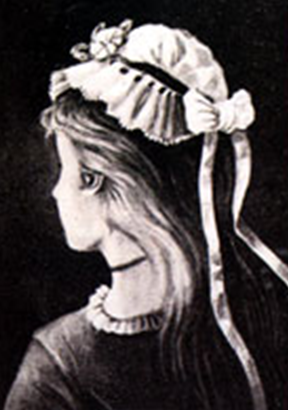 |
|
| Volume 24 Number 2 February 2022 |
Page 5 |
D.A. Adenugba
 When a very useful, loving, obedient and amiable person dies, folks often curse death. The deceased is already dead, and another person is dying elsewhere. Death inflicts sorrow and anguish daily. Why, then, do people curse death?
When a very useful, loving, obedient and amiable person dies, folks often curse death. The deceased is already dead, and another person is dying elsewhere. Death inflicts sorrow and anguish daily. Why, then, do people curse death?
Death is a persecutor and man’s foe (1 Corinthians 15:26). To curse death, other things or persons is using one’s mouth carelessly. James wrote that with our mouth, “We bless our God and Father, and with it we curse men, who have been made in the similitude of God. Out of the same mouth proceed blessing and cursing. My brethren, these things ought not to be so” (James 3:9-10 NKJV).
Do you know if the deceased was taken away because of evil days ahead? “The righteous perishes, and no man takes it to heart; merciful men are taken away, while no one considers that the righteous is taken away from evil” (Isaiah 57:1). Do you know if the deceased completed his or her earthly assignment?
Jesus said the mouth reveals the state of the heart. Besides, each person shall give account of how he or she uses the mouth. “For out of the abundance of the heart the mouth speaks. A good man out of the good treasure of his heart brings forth good things, and an evil man out of the evil treasure brings forth evil things. But I say to you that for every idle word men may speak, they will give account of it in the Day of Judgment. For by your words you will be justified, and by your words you will be condemned” (Matthew 12:34-37). Therefore, use your mouth prudently and for good things that minister grace to the hearers, realizing that judgment will come forth accordingly either for justification or for condemnation. You are called to blessings, and so, do not curse but bless always. “Not returning evil for evil or reviling for reviling, but on the contrary blessing, knowing that you were called to this, that you may inherit a blessing” (1 Peter 3:9).
Leave death alone! Cursing death does not alter one’s eternal situation. Do not curse death, the persecutor and inflictor of pains. Its days are numbered (1 Corinthians 15:26). By faith in Christ, be obedient to the Gospel. Do what is right in God’s sight, and salvation is sure for you. Again, do not curse anything, not even death. By cursing, you misuse your tongue. Be prudent in the use of your tongue (Proverbs 13:13; 21:23).
Judging on Appearance
Ralph Clevinger
 Who do you see in the picture? Some see a young woman who is dressed up for a party. Others claim this is an old woman dressed for warmth. Who is right? The answer primarily results from one’s perspective. Now that you know both possible perspectives, can you see from the other point of view?
Who do you see in the picture? Some see a young woman who is dressed up for a party. Others claim this is an old woman dressed for warmth. Who is right? The answer primarily results from one’s perspective. Now that you know both possible perspectives, can you see from the other point of view?
This picture serves as a powerful example. This picture could either be an old woman or a young woman. Both of these answers are valid. One of these answers is not better than the other. However, not everything in life fits this scenario. Instances exist where one needs to analyze the situation before making a judgment. Appearances often fail to fully identity a situation. A more thorough look produces better results.
Mark recorded an account in his Gospel record concerning Jesus and a man with a withered hand (Mark 3:1-6). The incident occurred on a Sabbath in a synagogue. People watched to see if Jesus would heal this man on the Sabbath. Jesus asked the question, “Is it lawful on the Sabbath to do good or to do evil, to save life or to kill?” (Mark 3:4). When everyone kept silent, Jesus instructed the man to stretch out his hand (Mark 3:5). This wonderful blessing caused the Pharisees to begin making plans to destroy Jesus (Mark 3:6).
Why would they seek to kill Jesus? It was because they judged the healing of the man as a work done on the Sabbath. The punishment for a sin of working on the Sabbath was death by stoning (Numbers 15:32-36). Later, Jesus referred to this event during the Feast of Tabernacles. He informed the crowd that He knew of the Pharisees desire to kill Him. Then, Jesus compared circumcision under the law of Moses to the healing of the man. What was the difference between the priest circumcising a boy and Jesus healing the man? There is no fundamental difference except one hurts a part of the body while the other helps. He then made this statement, “Do not judge according to appearance, but judge with righteous judgment” (John 7:24). The Pharisees judged Jesus wrongfully due to a strict adherence to the Law without applying it fully and correctly. The Law also required the priests to work on the Sabbath. The Pharisees’ perspective blinded them from understanding what God actually desired.
Instances arise in our lives where we need to make judgments or discernments. In those instances, we should be careful not to judge based upon appearances alone. We need to analyze the situation, first. We must use God’s Word as the basis to make an appropriate judgment or evaluation. Do not be quick to judge by appearances without coming to understand the facts.